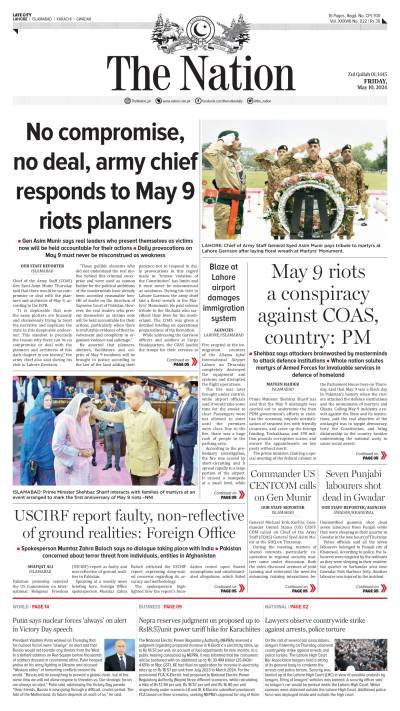United Nations declared 21st September as an International Day of Peace in 1981, after which every year many people, political and military observer groups and many countries devote this day to strengthen peace efforts in world.
Every year UN, announces a theme for this day to reinforce the ideals of peace, both within and among all nations and people. This year’s theme is “The Sustainable Development Goals: Building Blocks for Peace”. UN Secretary General Ban- Ki Moon while giving a message for peace day said, “The people of the world have asked us to shine a light on a future of promise and opportunity. Member States have responded with the 2030 Agenda for Sustainable Development... It is an agenda for people, to end poverty in all its forms. An agenda for the planet, our common home. An agenda for shared prosperity, peace and partnership.” According to the UN theme for peace, sustainability addresses the fundamental needs of the present without compromising the ability of future generations to meet their own needs. Modern challenges of poverty, hunger, diminishing natural resources, water scarcity, social inequality, environmental degradation, diseases, corruption, racism and many other factors pose challenges for peace and create fertile grounds for conflict. Sustainable development contributes decisively to dissipation and elimination of these causes of conflict and provides the foundation for a lasting peace. Peace, meanwhile, reinforces the conditions for sustainable development and liberates the resources needed for societies to develop and prosper.
After World War II, the United Nations was established by the United Nations Charter, the foreword of which states: “Save successive generations from the two scourge of war which twice in our lifetime has brought untold sorrow to mankind”. The Preamble to the United Nations Charter also aims to further the adoption of fundamental human rights, respect obligations to sources of international law as well as to unite the strength of independent countries in order to maintain international peace and security.
How unfortunate that today we are still on a quest of peace not on an individual level but among countries. Lust for more power, obsession for possessions and paranoia of terrorism is making this world a deadly place to live in. Wars come to an end but their shadows prevail in years to come, and they cannot be obscured from pages of history. Apart from efforts for sustenance of peace, there are many conflicts on-going which defeat peace efforts. Though many skirmishes in different parts of the world have emerged due to ideological differences, but despite being suggested no peaceful solution can be applicable to these countries. Presently, we see Muslim states facing many challenges, particularly due to the West under the burden of accusations of terrorism. Be it Syria, Iraq, Afghanistan, Yemen, Occupied Kashmir or any other Muslim state they are linked to phenomenon of terrorism, directly or indirectly. We see that UN and other peacekeeping organisations are weak whereas superpowers are busy in accomplishing their agendas.
Though during the era of the Cold War many nations were bound to be part of Bloc Politics and the everlasting impact of alliances paved the way for future liaisons among nations. Superpowers try to achieve their goal through coercive use of power and we are witnessing that the United States continues to practice a policy of ‘a la carte multilateralism’, favouring only those international efforts, which correlate with its national interests. America’s belief in ‘a la carte multilateralism’ gives her advantage to pick and choose its allies and mechanisms as circumstances suggest. We have seen this policy in the case of Pakistan too, where notion of either “with us or against us” was prominent in many crucial decisions for South Asian peace and stability. In an arena of globalisation, it’s really difficult for states to remain isolated and practice peace so peace within society can only be attained through good governance and rule of law and justice.
Though there are many theories and models presented for peace, practicality and adaptability matters the most. All such definitions of peace are shattered, where no nation state follows the contours of the peace model. We are seeing that humanity is paying the price for racism, sectarianism and terrorism. Currently we are witnessing skirmishes in Kashmir, Syria, Iraq, Afghanistan and other disputes among countries on smaller scale but yet an effective forceful body is needed to stop all the bloodshed. UN under its umbrella established peacekeeping missions and they have done remarkable work under their domain in particular areas, but to bring about total peace, particularly in war zones, is a difficult task and it needs mutual cooperation.
Generally countries who are involved in war acts announce 24 hours ceasefire in war hit areas just to honour this World Peace Day, but stopping war for few hours or a single day is a not a solution for permanent peace. Obviously putting weapons aside will not ensure peace in longer term and a workable solution is need of the hour for conflict ridden countries.
Sustainable development goals as initiated by UN are essential for lasting peace which starts from giving basic human rights to all. Present day situation of war hit areas, refugee crisis and use of force militarily, economically or politically disturb the balance of power equilibrium along with denial of basic human rights. Sustainable Development Goals by UN create the building blocks in the global architecture of peace and it is critical that we should organise means of implementation, including financial resources, technology development and transfer, and capacity-building, as well as the role of partnerships. To establish peace in the world we must remember that everyone has a stake and everyone has a contribution to make. In today’s scenario the words of Ronald Reagan rightly portray peace:
“Peace is not absence of conflict, it is the ability to handle conflict by peaceful means.”






